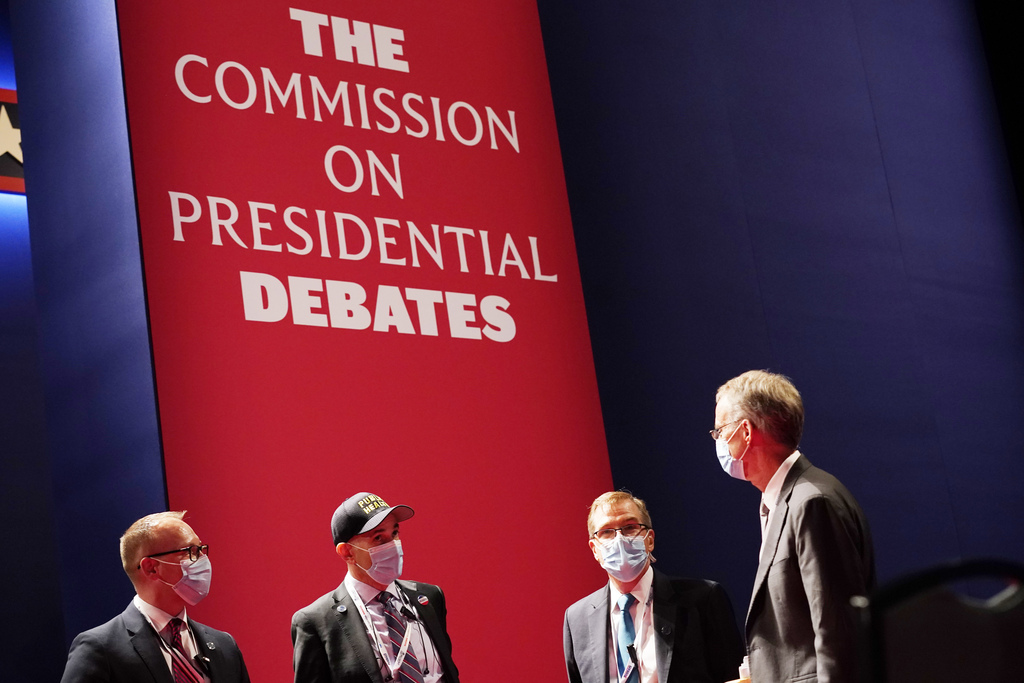
By Jill Colvin and Zeke Miller | Associated Press
WASHINGTON — The Republican National Committee said Thursday it is planning a rules change that would force presidential candidates seeking the party’s nomination to sign a pledge saying they will not participate in any debates sponsored by the Commission on Presidential Debates.
If ultimately enacted and enforced, it would fundamentally change the way that presidential elections have been conducted in the country for decades. Former President Donald Trump spent years accusing the nonprofit of unfair treatment.
In a letter to the commission first reported by The New York Times and obtained by The Associated Press, RNC Chair Ronna McDaniel voiced frustration with its response to a long list of complaints, including concerns about its selection of moderators, a desire for a debate before early voting starts and a push for changes to the commission’s board.
“The RNC has shared our concerns with the CPD in good faith, carefully documenting why the party and its voters have lost faith in your organization, and we have proposed commonsense reforms that would restore trust in the debates process,” she wrote. “Unfortunately, neither the tone nor substance of your latest response inspires confidence that the CPD will meaningfully address the serious issues which the RNC has raised.”
“Accordingly,” she wrote, “the RNC will initiate the process of amending the Rules of the Republican Party at our upcoming Winter Meeting to prohibit future Republican nominees from participating in CPD-sponsored debates.” The meeting will take place next month.
The commission said in a statement that it deals directly with candidates who qualify for participation in its debates.
“The CPD’s plans for 2024 will be based on fairness, neutrality and a firm commitment to help the American public learn about the candidates and the issues,” it said.
It remains unclear what would take the debates’ place if the Republican candidate were to boycott. The televised events provide voters with their only opportunity to see the candidates appear side-by-side, and force those running to weigh in on a wide variety of domestic and foreign policy topics.
RNC spokesperson Danielle Alvarez said the party is seeking a potential alternative debate partner.
While the RNC has the ability to change many party rules between its quadrennial conventions, final say on whether to participate in the commission-sponsored debates will fall on the GOP’s eventual 2024 nominee. The nominee usually effectively controls the convention, which could easily strip the rule drafted by party insiders if the nominee believes it is in their interest to attend the debates.
The commission was established in 1987 “to ensure, for the benefit of the American electorate, that general election debates between or among the leading candidates for the offices of President and Vice President of the United States are a permanent part of the electoral process,” the nonprofit writes on its website.
After the 2012 presidential cycle, the RNC took on a more formal role in the primary debate process, including sponsoring debates in partnership with selected media outlets. As a condition of participation, candidates for the nomination had to agree not to attend any unsanctioned debates.
After CNBC’s hosting of an October 2015 debate drew criticism from the candidates for poor management and “gotcha” questions designed to instigate clashes between the candidates, the RNC announced that it would ban NBC and its affiliates from hosting primary debates going forward.
Before the 2020 presidential debates, the RNC and the Trump campaign worked in public and behind the scenes to influence the selection of the debate hosts. Still, Trump voiced complaints that selected moderators were biased again him.
